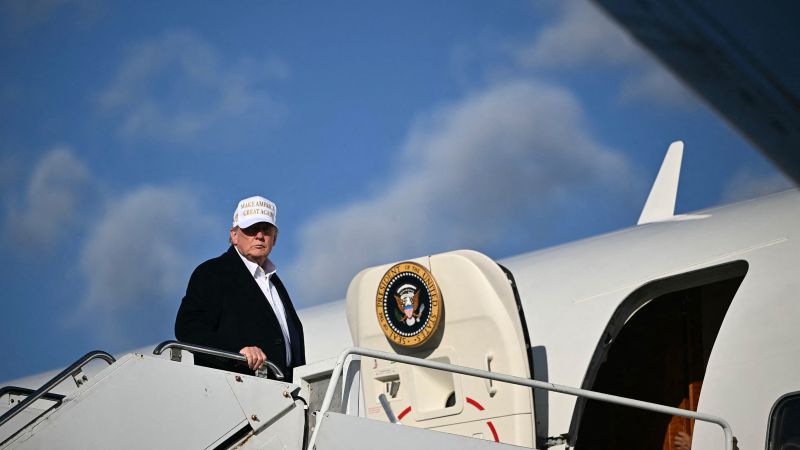The recent developments regarding the acceptance of a Boeing 747-8 jet as a potential substitute for Air Force One by the Trump administration have sparked significant discussion and controversy. On Monday, White House Press Secretary Karoline Leavitt addressed the media, providing updates on the legal intricacies surrounding the donation from the Qatari royal family. She stated that the details of accepting the aircraft, which is intended to replace the current Air Force One, are still under consideration and being carefully examined.
Leavitt further emphasized that any donation made to the U.S. government would strictly adhere to legal regulations. This reassurance was likely aimed at allaying concerns regarding potential ethics violations or conflicts of interest related to foreign gifts. CNN reported that according to sources familiar with the matter, the Trump administration was poised to acquire this luxury jet from the Qatari royal family, which would be retrofitted to meet the needs of presidential travel during Trump’s upcoming term.
In response to inquiries about whether accepting such a significant gift might entail obligations or expectations from the Qatari side, Leavitt firmly rejected the notion. She expressed confidence that the Qatari royal family understands President Trump operates solely with the interests of the American people in mind. This claim reveals an essential aspect of diplomatic discourse, where the perception of foreign gifts can influence geopolitical relations.
President Donald Trump himself reinforced the narrative on social media, asserting that the Defense Department was preparing to accept the aircraft as a generous “gift, free of charge.” The former president characterized the transaction as a straightforward deal, aimed at being “very public and transparent.” However, the magnitude of such a gift raises considerable questions about ethics and legality within governmental operations, particularly when dealing with foreign nations.
The Qatari official involved clarified that the aircraft would be officially gifted from the Qatari Ministry of Defense to the U.S. Pentagon. Hence, the transaction was presented more as an inter-governmental exchange rather than a personal gift. Following the transfer, the Pentagon is responsible for equipping the aircraft with necessary security features and modifications, underscoring the complexities involved in accommodating such a significant asset in the realm of national security.
On the other hand, Ali Al-Ansari, the media attaché for Qatar in the United States, provided insight into ongoing discussions between Qatar’s and the U.S. Departments of Defense about the aircraft’s use as Air Force One. He indicated that while the matter remains under review and no final decisions have been reached, the Chinese scrutiny is evident among both nations’ legal teams.
However, tensions are rising within the U.S. security apparatus concerning the implications of accepting a foreign government’s jet for presidential use. A source within the Secret Service labeled the proposed transfer as a “security nightmare,” indicating that extensive searches and in-depth evaluations would be necessary to confirm the aircraft’s safety. The U.S. Air Force would likely need to conduct thorough inspections to ensure that the jet is free of any hidden surveillance devices or security threats.
In a bold defense of the project, Trump argued that accepting the jet represents a practical opportunity, declaring that it would be unwise to decline such an advantageous offer. He also added that the aircraft would ultimately be housed in his presidential library following his time in office, emphasizing that he would not personally use the plane.
This intense debate highlights the friction between national security considerations and the broadening definition of diplomatic relations in the contemporary political climate, raising awareness regarding the ethical responsibilities that come with such significant gifts from foreign entities.



